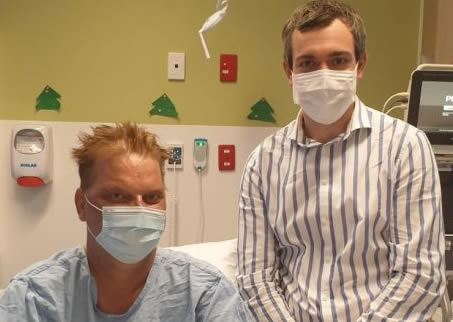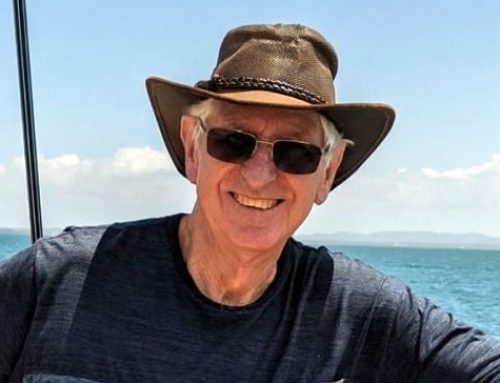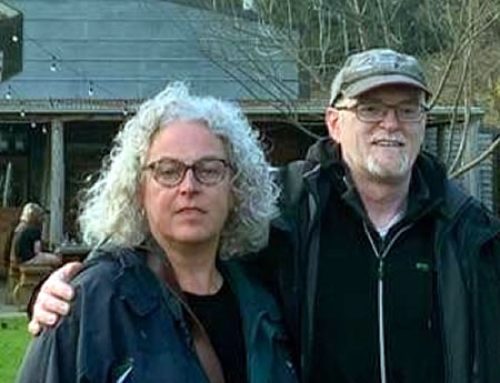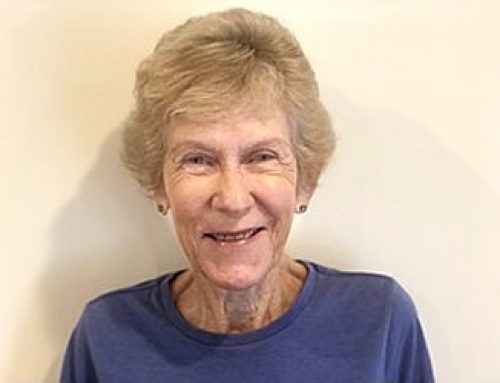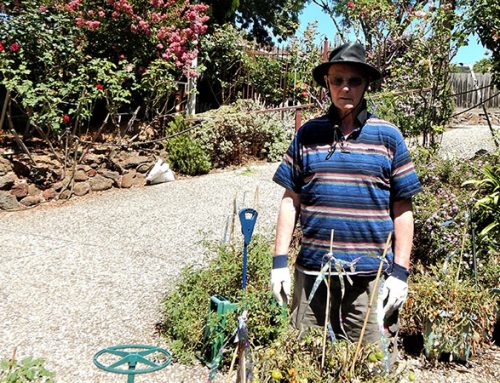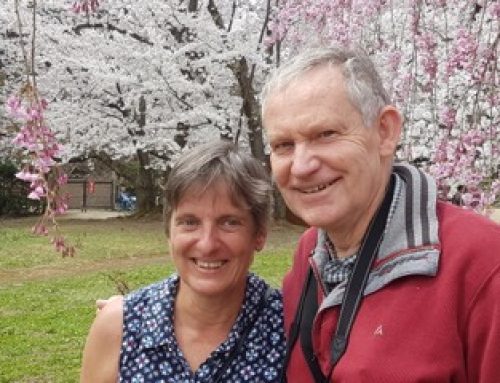Article by Lauren Barker
(first published on Central Adelaide Local Health Network)
Lyall Pearce was feeling fit and healthy, having just celebrated his 50th birthday.
“My grandmother lived to 101, so I was thinking I had about another 50 years left,” the husband and father of two from Hillcrest said.
But when the ride to work he did every day suddenly became a struggle, he felt something was wrong.
“I used to ride my bike every day to work about 9-10km, rain or shine. I found it started to get more and more difficult to get up a hill along the way.”
Prognosis
After seeing his GP and being referred to a thyroid specialist, he was finally diagnosed with Multiple Myeloma with secondary cardiac amyloidosis (due to the toxic protein produced by the myeloma cells), and given an 18 month prognosis.
That was in 2015.
Lyall’s journey
Although Lyall had numerous hospital admissions and side-effects, he initially responded well to chemotherapy under the care of by haematologist Dr Noemi Horvath.
But the impact of the chemotherapy treatment and the infiltration from the amyloidosis in his heart had severely impaired his heart’s function.
Doctors installed a pacemaker and he began heart medications, but by mid 2020 his situation was dire and had developed resistant heart failure despite numerous medical interventions.
Lyall was essentially bed-bound and unable to move without becoming breathless and his other body organs had started to be compromised due to his extremely poor heart function.
During an admission to the Royal Adelaide Hospital in June 2020, Lyall was flown urgently to St Vincent’s Hospital in Sydney where he waited for a heart transplant.
As his clinical status deteriorated, to bridge him during this wait, the team at St Vincent’s Hospital installed a specialised mechanical cardiac device called an Impella Device.
An Australian first
“He is the first person in Australia to have a short-term Impella pump implanted while supporting him to an urgent heart transplant,” CALHN cardiologist Dr Michael Stokes explained.
“Some patients may have much longer periods of mechanical cardiac support with a ventricular assist device (LVAD), but this wasn’t a viable option for Lyall.
“The Impella is used very rarely, usually in patients recovering from a large heart attack for a few days. It’s only been used a very small number of times in Australia.”
Four days later on July 1, Lyall had a heart organ donor match, and he was one of the first myeloma-related amyloidosis heart transplants performed in Australia.

*Pictured are Lyall Pearce with Dr Michael Stokes.
“Lyall has taken part in a number of clinical trials and he was able to get compassionate access to an anti-plasma cell antibody (called Daratumumab) that has shown promising results in myeloma patients,” Dr Horvarth said.
“This was successful in keeping Lyall’s toxic protein production under control for 18 months.
“In spite of that, his heart function continued to deteriorate so it was fortunate that he was eligible for the subsequent treatment he received.”
Lyall spent several weeks in ICU and then on the ward at St Vincent’s Hospital, but is now back home recovering and relatively independent.
Looking forward
“We think he is going really well and we are optimistic,” Dr Stokes said.
“He’s five months post-transplant and requires long-term immunosuppressive therapy. “
While still battling amyloidosis, Lyall has new goals to achieve.
“It’s just a matter of being able to get my fitness back. I’d like to get on my bike again.”
He is also hoping to get back to work next year at DXC Applications where he has worked as a support specialist for 20 years.
June 2023 – My life after my heart transplant
Subsequent to my heart transplant, I had finished watching all of YouTube and Netflix and decided to return to work.
Work in IT is not physically demanding and the DXC (The company I work for) had a “Work from home” policy that was introduced during the Covid pandemic.
So, I returned to work in 2021 and continues in his role of IT Support to this day.
I have also participated in the Adelaide City to Bay fun run, 2022. Whilst I did not actually “run”, I walked. I did complete the entire 12km event, though and I would have liked to have been a little faster. I was overtaken by a lady, more senior than me, who had an oxygen bottle in a baby stroller and was trying to get in shape for a lung transplant.
I also keep in touch with some fellow heart transplant patients. WE all had our transplants for different reasons. One of these people has discovered marathons but was kind enough to walk with me on the City to Bay fun run.
I also has a new member of the family, a small Bichon Frise/Poodle cross dog, whom I take on walks almost every day with a friend who lives about 100m away who has a Maltese Schitzu of the same age.
I wheeled out is bicycle in May and discovered that it was not as easy to ride as it once was, requiring a bit more practice. Riding around the block is hard enough, let alone 100km+as I used to be able to ride.

